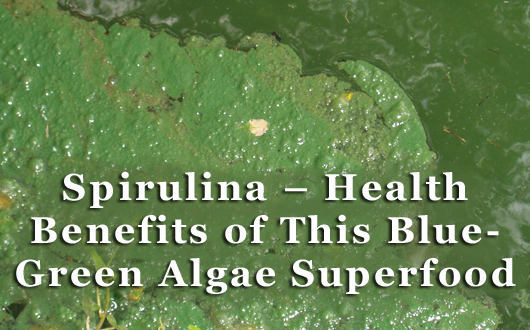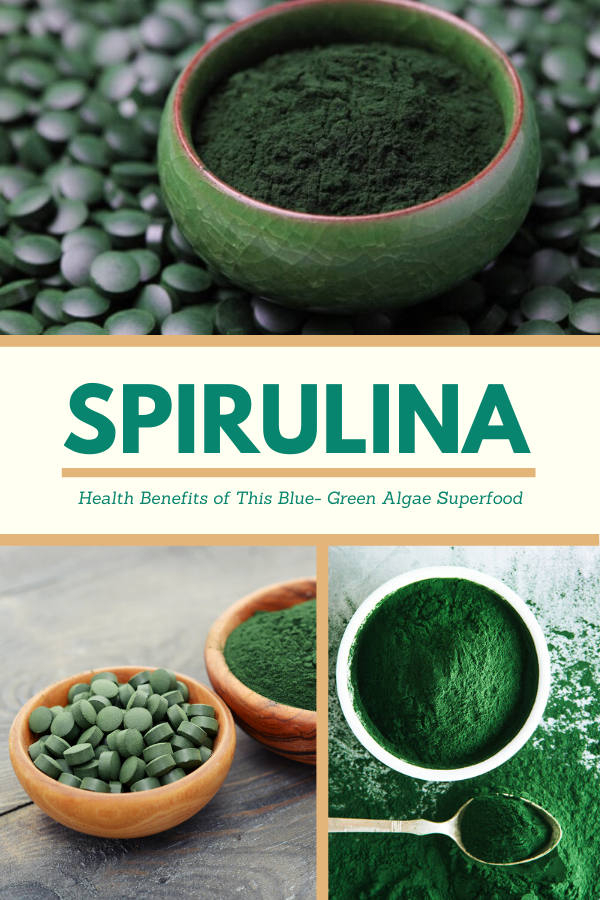
When looking at super foods to add to your diet, spirulina (a type of blue-green algae) should be on your list. As with any other medication or supplement, talk to your doctor before starting it.
What Is Spirulina?
Spirulina is natural plant that grows in warm salt water. It comes in a supplement form. You can find spirulina powder or pill forms at most natural foods stores. You may even find it as a juice.
Spirulina Benefits

There are many benefits of spirulina. It is a nutritional powerhouse that is high in vitamins, minerals, proteins, antioxidants and carotenoids—namely vitamin E, chlorophyll, and vitamin B-complex. Other Spirulina health benefits include:
- Enhanced weight loss
- Allergy treatment
- Arsenic poisoning treatment
- Immune system enhancement
- ADHD treatment
- Cancer prevention
- Diabetes treatment
- Helps lower bad cholesterol and high blood pressure levels.
- GI treatment
- PMS treatment
- Liver failure treatment
Are you on a candida diet? You may want to add spirulina to your nutritional regimen as it promotes healthy bacterial flora growth in the gut. In addition to battling candida overgrowth, this makes it great for other GI conditions like leaky gut syndrome, celiac disease and possibly even inflammatory bowel disease.
Not only do you get a boost in your immune system by fighting off allergies and preventing viruses, but autoimmune diseases such as lupus, chronic fatigue, Crohn’s and fibromyalgia can get a boost. There is even speculation regarding the use of spirulina in spiritual health.
Spirulina and Chlorella
Another algae supplement similar to spirulina is chlorella, which can be confusing. It grows in fresh water and is available in liquid or tablet form.
Chlorella is used to detox the body of heavy metals, particularly mercury. It is also indicated for people who suffer from degenerative diseases.
On a cellular level, the main difference is that chlorella has a hard cell wall and spirulina doesn’t. This is why you should avoid taking spirulina supplements with toxic metals.
Spirulina Side Effects

Make sure the product you use does not have any contaminants (i.e., harmful bacteria, toxic metals or microcystins). Contaminants can cause serious health conditions, especially in children.
It’s important to do research when choosing the brand. Make sure it is grown in a controlled environment and that the spirulina is organic.
The usual daily dosage is 3-5 grams, spread between two to three times a day. Make sure you have an adequate intake of filtered or spring water to help your body properly absorb the spirulina.
to help your body properly absorb the spirulina.
There has not been enough testing done to determine how safe it is to take during pregnancy. Even though spirulina helps the immune system, people with autoimmune diseases could experience increased symptoms due to the boost their immune system receives.
It should not be taken if you suffer from phenylketonuria. Check with your doctor if you take immune suppressants, blood pressure medications, or blood thinners. Avoid spirulina if you have a seafood or iodine allergy.
A few lesser risks might include low-grade fever, restlessness, green bowel movements (due to the chlorophyll), dry or itchy skin, and fatigue.
Enjoyed Spirulina – Health Benefits of This Blue- Green Algae Superfood? Share it with your friends so they too can follow the Superfoodsliving journey.
Share on Pinterest
